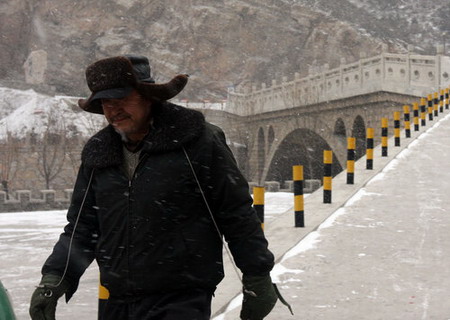
© Star-Telegram/Paul Moseley Heavy snow brought poor visibility to drivers on Interstate 30 in west Fort Worth around 11:30 a.m. Thursday.
A Christmas Eve blizzard made a mess of holiday travel plans, stranding motorists, forcing flight cancellations, canceling church services and raising concerns about roadways on Christmas morning.
Bridges to D/FW Airport terminals were reported closed early today due to the icy road conditions, Fox 4 News said. The National Weather Service said the icy roads would persist into the mid- to late-morning hours, making for hazardous driving conditions, especially on bridges and under overpasses. The airport was hoping to reopen bridges by noon, Fox 4 said.
Despite the winter weather havoc, many North Texans were excited about waking up to a very rare event: a white Christmas. Snow fell heavily through the day and early evening Thursday, and overnight temperatures in the 20s made it possible for the fluffiness to stick around. Sunny skies and higher temperatures should melt the snow away by late-morning, the weather service said today.
More than 2 inches of snow was recorded at Dallas/Fort Worth Airport on Thursday, according to the weather service. Areas to the northwest were walloped, with 8 inches falling in Nocona in Montague County and 5 to 6 inches in Wichita Falls.

